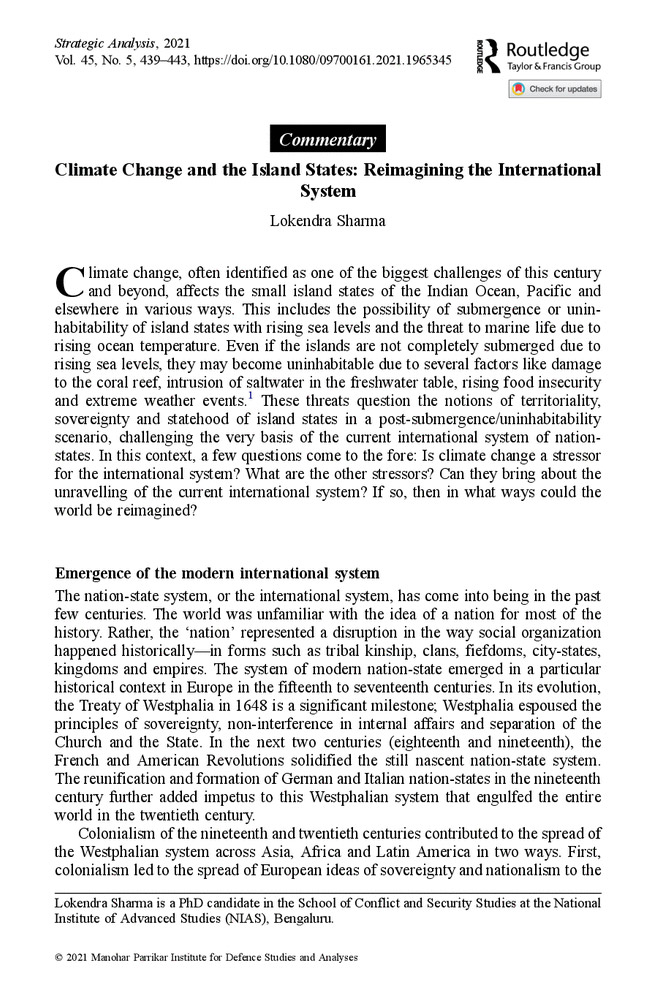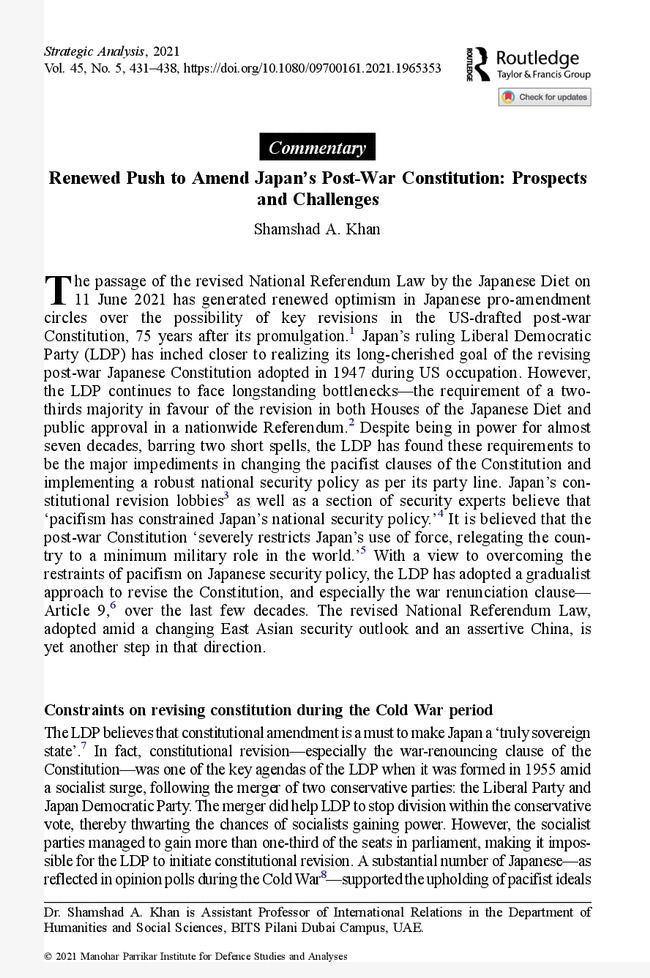India–Australia: Defining New Horizons of Engagement
The landmark virtual summit between Prime Ministers Narendra Modi and Scott Morrison in June 2020 led to ties being upgraded to a Comprehensive Strategic Partnership. Australia’s High Commissioner to India alluded to the four D’s—Democracy, Defence, Diaspora, Dosti (friendship), with increased focus on Defence. In the India–Australia partnership, the emphasis is on maritime security cooperation, Quad 2.0, the Malabar exercises as well as cyber security and intelligence cooperation.
- Pankaj K Jha , Shaun Star |
- September 2021 |
- Strategic Analysis
India’s Defence Expenditure: A Trend Analysis
This article examines India’s defence expenditure over the past ten years. In so doing, it provides a public finance perspective to explain the recurring resource crunch being faced by the Ministry of Defence (MoD). The article reasons that a substantial augmentation of resources for the MoD in the past has faced stiff barriers due to lack of tax buoyancy and also the political, economic and other exigencies that have led to greater public spending outside the traditional areas of expenses, including defence.
- Laxman Kumar Behera , Pabitra Mohan Nayak |
- September 2021 |
- Strategic Analysis
Partnering a Rival: The Sustenance of India’s Complex Interdependence with China, 2010-20
While a worrying disrepair in the political-military strand of the equation between New Delhi and Beijing prevailed through the 2010s, its economic component witnessed contrasting instances of convergence.
- Bipin K. Tiwary , Anubhav Roy |
- September 2021 |
- Strategic Analysis
The Formation of the Indian Diaspora
The Indian Diaspora is one of the world’s largest overseas groupings. The Diaspora is considered India's 30th state with over 30 million overseas Indians. This article outlines the main strands of its formation, from the first movement of indentured workers and subsequent phases of migration of skilled professionals to the West and of workers to the Persian Gulf. They remain the single–largest contributor of foreign exchange and development in the country. Understanding its formation is an essential step for studying the Diaspora and engaging with it. This article aims to do that.
- D. Padma Kumar Pillay , T.K. Manoj Kumar |
- July 2021 |
- Strategic Analysis
India and the Geopolitics of UNSC Permanent Membership
The United Nations completed 75 years of its existence in 2020. The last 75 years have been a roller coaster ride for this global institution mandated to maintain peace. However, the UN has received widespread criticism for not reforming its various institutions, particularly the United Nations Security Council (UNSC). The G-4 nations which includes India, have led the call for accelerating the long-awaited reform process.
- Vinay Kaura , Chakravarti Singh |
- July 2021 |
- Strategic Analysis
Infrastructure of Injustice: State and Politics in Manipur and Northeast India
Raile Rocky Ziipao, New Delhi, Routledge, 2020, 202 pp., Rs. 995.00 (Hardcover), ISBN 978-0-3677-0805-4
- Ramachan A. Shimray |
- July 2021 |
- Strategic Analysis








